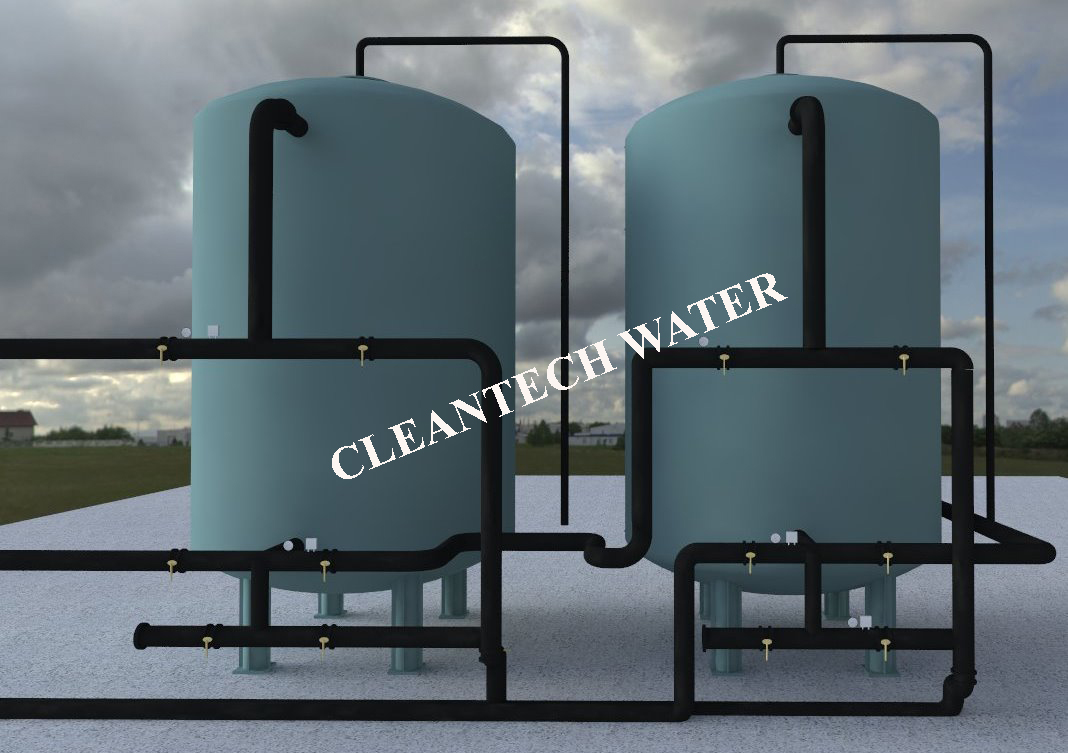Water filters have become a necessary part of our lives due to increased pollution, contaminants, and numerous other factors. Today, one of the best and most effective water filters in the world is the activated carbon water filter. They are infamous for ridding the water of pollutants, bacteria, odours, and foul tastes.
Activated carbon filters can target and eliminate approximately 99 percent of sediment, chloramine, suspended solids, heavy metals, and more from the water, allowing it to be usable again.

Activated Carbon Filter
Activated carbon filters, commonly referred to as activated charcoal filters, differ from your usual water filtration system. The filtration system comprises black beads or porous sponges to capture impurities at a greater rate. The activation process is one of the most crucial aspects of this filter, which is done by inserting heat or steam. The heat or steam expands the surface area of the carbon. Due to the expansion during activation, the carbon pores also expand to capture various kinds of pollutants and impurities in the water.
Fun Fact: 450 grams of activated carbon can absorb impurities from a surface of approximately 100 acres.
How Do Active Carbon Filters Affect Water?
Most activated carbon filter cartridges use a method called adsorption to enhance filtration. The behaviour of the activated carbon is akin to a sponge, absorbing contaminants from a vast surface area.
The impurity-rich water travels to zones with the most powerful attraction force. Since the force of attraction keeping the pollutants and impurities mixed in the water is significantly stronger than their attraction, the contaminants are attracted to the surface of the carbon.
Activated carbon filters are much more versatile than your average carbon filters, as they can eliminate chemicals like chlorine from your water (chlorine does not stick to average carbon filters). Activated carbon can transform chlorine in the water into salt due to its higher reactivity than average carbon.
What is the Difference Between Carbon Filters
Even though activated and regular carbon filters are both incredible for removing pollutants, there is still a difference that distinguishes them. Firstly, activated carbon filters remove more contaminants than regular carbon filters. The amount of activated carbon also makes a huge difference in the performance of the filter. This affects absorption rate, filtering capacity, efficiency, and numerous other factors. Filters with high levels of activated carbon also have an increased lifespan, lowering replacement rates.
Types of Activated Carbon Filters
When it comes to activated carbon filters, two distinctions can be made:
- Carbon block filters
- Granular activated charcoal (GAC)
Carbon block filters consist of finely ground granules of activated carbon. These filters are created with activated carbon at less than one micron and a binding agent. The granules are attached to avoid excessive movement. The blocks in the carbon block filter are created when the pellets are incorporated into binding agents.
Types of media that can be applied to a carbon filter:
- Coconut
- Shell Media
- Bituminous coal
Granular activated charcoal (GAC) comprises small, millimetre-sized particles and loose activated carbon granules. They can detect even the finest contaminants and filter them out, which is generally unnoticed in numerous filters.
Continents of the Filter
- Coconut shell
- Coal
- Wood
GAC filters have 7-10 times the coverage area of carbon block filters, and they deter channelling.
Contaminants Removed By Carbon Block Water Filters
Activated carbon filters are ideal for extracting various impurities and pollutants from water. These pollutants include everything from physical impurities to chemicals and more.
Here are some of the crucial and common water pollutants removed or reduced by activated charcoal filters
PFOS/Perfluorooctanesulfonic Acid
Perfluorooctanesulfonic acid is commonly known as PFOS for short. PFOS contains a synthetic component that makes it stain and water-resistant. They are commonly used to create and process furniture, food packaging, carpets, clothing materials, etc. Since PFOS is resistant to grease, water, or stains, this chemical can be incredibly challenging to break down. Therefore, if not filtered properly, it can remain in the water for several decades. This chemical can harm people, which is why it is necessary to treat it. Adverse effects of this chemical include cancer, liver damage, and even disabilities. Thankfully, activated carbon filters can efficiently filter and eliminate PFAS, PFOS, and PFNA.
Pharmaceuticals
Pharmaceuticals are synthetic and natural chemicals that occur in all types of medication. They can get into water through various sources, such as waste, incorrect disposal, and runoff from livestock waste. These chemicals can have a damaging impact on aquatic life and accumulate in the environment. Good-quality activated carbon filters can eliminate pharmaceutical residue.
Phosphate
Human and animal sewage releases phosphates into water. Other methods of phosphate release are chemical manufacturing and several different sources. Even the phosphates are necessary for plants and their growth; excess amounts can lead to cloudy water and fungal bloom. Superior quality activated carbon filters can extract more than 90% of phosphates from the water.
Chlorine
In many countries, chlorine is the disinfectant that is usually favoured. Although chlorine can make your water taste and smell bad. Therefore, even though chlorine disinfects, it can make approximately 90% of people sick. Activated carbon filters remove the foul, unpleasant smell of water and chlorine.
Herbicides & Pesticides
Herbicides and pesticides have been part of agricultural practices for centuries. They are used to control weeds and pests and enhance production. Even though these chemicals are beneficial for growth, when they end up in the water supply, they can be quite harmful to aquatic life and humans. The chemicals in herbicides and pesticides can cause several ailments, including cancer. Activated carbon filters remove the 12 most common herbicides and pesticides, which include 2,4-D weedkiller and atrazine.
Find the Best Activated Carbon Filters From Cleantech Waters
We at Cleantech Waters are India’s leading activated carbon manufacturer; we provide you with the highest quality activated carbon filters for all your needs. Whether you require activated carbon filter systems for sewage treatment plants or to purify wastewater, our carbon filters come fitted with advanced technology and a performance system to deliver clean water.
To learn more about the features of our product, feel free to contact us at +91-9099915539 or send us a quick email at info@cleantechwater.co.in.

